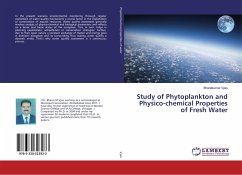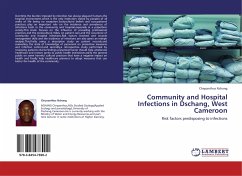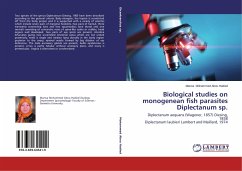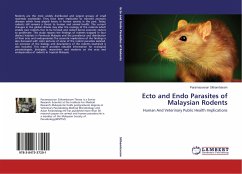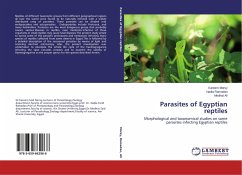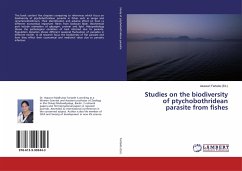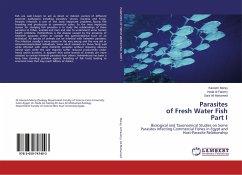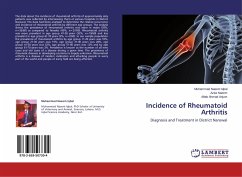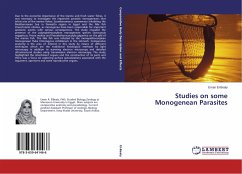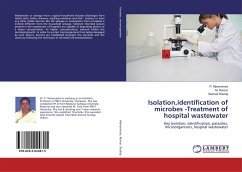
Isolation,identification of microbes -Treatment of hospital wastewater
Key Isolation, identification, parasites, microorganisms, hospital wastewater
Versandkostenfrei!
Versandfertig in 6-10 Tagen
51,99 €
inkl. MwSt.

PAYBACK Punkte
26 °P sammeln!
Wastewater or sewage from a typical household includes discharges from toilets sinks, baths, showers, washing machines and dish - washers or from any other similar sources. But the sewage or wastewater from a hospital is entirely different from the household sewage. Selected microbial species present in the wastewater of hospitals are capable of degrading phenol at a lower concentration. At higher concentrations, phenols inhibit the microbial growth. In order to protect microorganisms from being damaged by such factors, barriers are established between the microbes and the toxins by following ...
Wastewater or sewage from a typical household includes discharges from toilets sinks, baths, showers, washing machines and dish - washers or from any other similar sources. But the sewage or wastewater from a hospital is entirely different from the household sewage. Selected microbial species present in the wastewater of hospitals are capable of degrading phenol at a lower concentration. At higher concentrations, phenols inhibit the microbial growth. In order to protect microorganisms from being damaged by such factors, barriers are established between the microbes and the toxins by following the technique of microbial cell immobilization.



